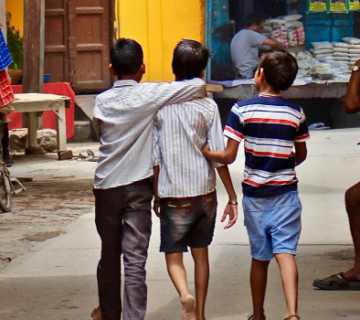The Duma, the Russian Parliament, invited members of Parliaments and experts for a discussion on the development of parliamentary systems. Letizia De Torre, president of the MPPU, was also present.
“It is important to walk together with all those who are seeking some kind of change in the world. All of us, individually and collectively, are called to unity and so every positive step should be celebrated”. This is former member of the Italian Parliament and President of the International Centre of the Movement for Unity in Politics (MPPU), Letizia De Torre’s initial impression. She was present at a Forum which took place from 30 June to 3 July entitled “The Development of Parliamentarism” on the development of parliamentary systems. It proposed an iniative called co-governance, i.e. the idea of institutions and civil society exercising co-responsibility in governing cities and international relations. This idea was the central theme of a conference held in Castelgandolfo (Rome, Italy) last January and was put forward on different levels and in different countries and will be developed further at a second high-level meeting in Brazil in 2021.
How did CO-Governance arrive in Moscow?
The Secretary General and the Advisor of the IAO (Interparliamentary Assembly on Orthodoxy), http://eiao.org/home_english_iao, – a network of Orthodox parliamentarians, including Russians, with whom we work together – took part in the CO-Governance event in Rome in 2019. They were really interested in the idea and made sure that the MPPU was invited to the Forum – http://duma.gov.ru/en/international/forum_english/. I must say that it was only when I arrived in Moscow that I really understood why.
In fact, it may come as a surprise to learn that Russia’s institutional system is defined by expressions such as “controlled democracy”, “centralism”, “ambivalence between modernization and traditionalism”, while co-governance involves co-responsibility, widespread participation, innovative relations between politicians and citizens …
In fact, and this is symptomatic of an epochal change we are currently experiencing, politicians are being asked to change. Citizens have lost confidence and the Internet has catapulted us into a world which takes us beyond the rigidity of the palaces of politics. Many parliamentarians are looking for new paths to follow and CO-Governance expresses the idea of a deep relationship between politicians and citizens, and of co-responsibility for governing at all levels, without fear of the times we are living in which are so complex.
How was your proposal received?
The idea of collaboration is developing in all societies and the Forum’s final declaration also reflects this sign of the times. But what has been welcomed with surprise is the underlying political logic: “Treat the other country and everyone ‘other than you’ as you would like to be treated yourself. This attitude revolutionizes politics and gives it the new role it needs today: that of facilitator and catalyst for collaboration between everyone.
What does the MPPU take away from this official presence in Russia?
First of all, I experienced a change on a personal level. The Russian people are wonderful and attentive; Moscow is beautiful, rich in history, efficient and remains in your heart. In this sense it is easy to feel that you are amongst brothers and sisters.
But getting to know another country’s political system more deeply is a different story. I “landed” in a political culture which was completely different and I was afraid I wouldn’t understand it. At the first difficulties I found myself at a crossroads. I could either set myself apart or put into practice the “method” that had one day fascinated me. I consciously decided to love Russia as much as I love my own country. You don’t love your own country because it’s perfect. You just love it. You enjoy and suffer with and for it in good times and in hard times. That’s how I began to understand Russia today. I tried to look at the world from its point of view, even to the point of feeling regret for the negative judgments it receives which are often instrumental in the race for geopolitical supremacy.
I appreciated how the Forum was intent on exercising “soft power”, with which I believe Russia is trying to gain the trust of other countries and draw closer to them with more dignity and respect.
I found myself more open to accepting and welcoming, for example, the desire for unity between the two Koreas expressed by the North Korean MP; the commitment to seek “partnership” rather than dependence expressed by a Ghanaian MP; the hope expressed by the Syrian delegation and the question expressed by the Lebanese MP “But why do we kill each other?” who concluded with the strength of his Orthodox faith: “God does not want this!”.
Stefania Tanesini


 Italiano
Italiano Español
Español Français
Français Português
Português




Ringrazio di cuore la deputata Letizia di Torre per averci fatto partecipi della sua presenza al parlamento russo, come Presidente Internazionale del MPPU. Abbiamo in cuore e preghiamo per tutti i politici italiani, europei affinché cresca la presenza dell’opera nel mondo politico. Un grazie di cuore a tutti. Gino Francesco Visicchio, Volontario di Dio zona Castelli Romani, Lazio.